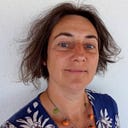The beauty of knowledge
I read a lot. I love it. The best stories, poems, lyrics and prose stay with you and become part of you. They guide you through the dark times and prove points to fall back onto. I’m forever quoting, or more often singing, my way through the days. Always at hand are the lines to remind me of better ways, or why things are the way they are.
There’s so much information though. The internet with the sum of all human knowledge at our fingertips. We are so incredibly lucky to have all this effort and thought and whilst I absorb what I can, I realise I will never even scratch the surface.
This new war prompts me to go back and read history, taking care to choose a range of sources, hopefully helping to build a rounded picture of reality. Choosing balance is important, a skill to nuture, which can feel increasingly difficult when the headlines are clickbait. Often when you read an article it’s not as terrible or noteworthy as they want you to believe. It’s an ask to get beyond this, particularly for those who are not taught to dig further. And you do need to be taught, the internet and it’s social forums want a numb audience, passively providing their attention and a click to boot.
As I write my new business plan, I’m pulled in different directions. The internet offers up new gems of places to go and networks to join. Effective Altruism leads me to 80,000 hours, leads me to Less Wrong.
Now I find these sites incredible and to a point, overwhelming. It feels like it would take 80,000 hours to read the Less Wrong site and, I hope I don’t offend anyone here, but it feels impenetrable and possibly elitist. I’m sure there is a wealth of important theories and articles to read and learn. Just reading the starting place blew my mind, and perhaps it’s the hour of the day (or night), I wonder where it would take me. I believe also, that others should have this information too, written in ways that are clear and simple to understand.
Knowledge is a gift, the joy of learning and the ability to scrutinise your beliefs takes time to develop. I’m not convinced our education systems teach critical thinking as a necessary way to navigate the world properly. I think many teachers feel stiffled by a narrow band of approved topics. There is definitely an increasing number of parents seek alternative pathways for their children’s learning.
An argument can be made that, as we now have access to the vast majority of human knowledge, anyone should be able to find their way to the information they need. Yet, our shared experience knows this isn’t a truth. Degree students are taught how to research effectively, focussing their searches and exploring the edges. Paid links trump actual information in the orders presented on search engines, and who scrolls far beyond pages two and three? Expecting people to understand this without support isn’t realistic. And this is a problem.
I will dive into long articles and gorge on information. Ideas and discussions are critical, ones which every person should have both access to and the ability to talk on, raise their views and make their voices heard. It’s great that I and many others read, digest and chat on forums. But, I want to hear voices that are diverse, those not shackled to the cultural walls I’ve grown up in. When I read books, such as the brilliant Braiding Sweetgrass: Indigenous Wisdom, Scientific Knowledge, and the Teachings of Plants by Robin Wall Kimmerer, it’s clear how we need these alternative perspectives. They bring richness and light, transformation and detail.
Building the ability for everyone to engage authentically with this complex world is a huge challenge, and not possible overnight. Yet, moving us away from complacent consumers to engaged citizens, is exactly what is needed. Climate action, equality, the future of AI and other technologies, all of these and more need active participation from us all. It’s not enough to stand on the sidelines, or just vote and walk away, job done for another four years. We need to comprehend situations, talk through conflicting and challenging problems and face differences of opinions. There are always underlying shared values that we can find as starting points for these discussions.
I remember one of my science fiction books, a trilogy actually, where humans have evolved to have a shared conciousness, actively engaging on the range of decisions that permeate life. The Matrix is not yet reality, but in lieu of uploading whatever and whenever we want directly to our brain, tackling accessibility to information needs to be a priority for all communities. I might think I know best, but only a lived experience can be relied upon. It’s why, so often, politicians fail to serve the communities they represent. In the UK, the majority of our elected representatives have been schooled by a few select universities. This experience though will never give you the comprehension of managing life on the breadline for example, yet we rely on these people to deliver policies that tackle inequality.
We are connected and switched on in ways unimaginable to our ancestors. Can the technology in our pockets begin to yield the interaction needed for the future? I’m no expert in Web3 or Decentralised Autonomous Organisations, but they suggest a move towards open and democratic participation across a wide range of subjects. Governance requires knowledge and with the world at our fingertips, we all should have the chance to become decision-makers. Our world will be much richer and far improved from active engagement by everyone in our shared future pathways.
